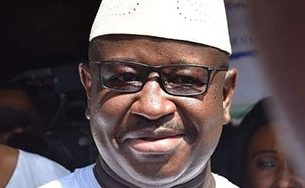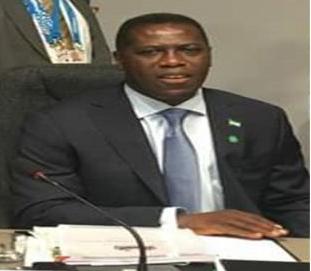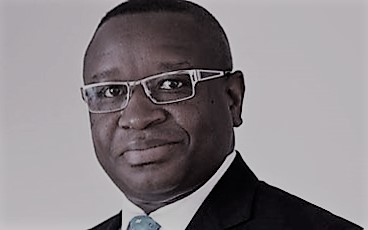The 2012 elections: a seminal test for the re-branded APC and the National Elections Commission!
The recent statement by the president, Dr. Ernest Bai Koroma at the opening of the NEC headquarters building- that elections are not a matter of life and death, but a healthy competition- may signal reassurance that the violence and intimidation modus operandi of the old APC is no longer in vogue and should not be tolerated in our current political dispensation. However, to readers of my generation with still very vivid memories of the sham elections conducted by the APC, which directly resulted in the devastating civil war, the jury remains out on this proposition as the record of the APC speaks volumes.
In the aftermath of the recent visit by a delegation from the United Nations Peace Building Commission to Sierra Leone, it is worth noting that the greatest short term risk to the consolidation of peace in the country remains the administration and conduct of the upcoming 2012 parliamentary and presidential elections.
It is thus in this regard, that the Commission and the broader international community’s attention and focus must be placed squarely on the electoral administration institutions – the NEC and PPRC – to ensure articulation and implementation of measures and regulations designed to mitigate and forestall the age-old issue of electoral political violence and intimidation.
Since the end of the civil war in 2002, the successful conduct of the 2007 elections has been touted as representing some progress in peace building, while the conduct of some post-2007 by-elections have glaringly highlighted the potential fragility of the political landscape. However, these gains cannot yet be deemed irreversible in light of the growing polarization of the body-politic along ethnicity, witnessed in all regions of the country, especially since the 2007 elections.
The APC RECORD
Historically, the record of the APC party while in government to organize free and fair elections in Sierra Leone has been dismal, as evidenced by the farcical and undemocratic, intimidation and violence fueled 1971 republican referendum, 1973, 1978 and 1983 elections under the one-party Siaka Stevens era and subsequent elections under the Momoh era.
The party has however shown tremendous tenacity while in opposition and benefited from crucial relatively free and fair elections organized by its rival SLPP- as in 1967 and most recently in 2007. These electoral gains and victories are viewed largely as a reaction by the electorate to the governance failures of the then SLPP and not necessarily due to any new enlightened policies, ideological or governance development-model articulated or implemented by the APC.
In fact as is the case with most political parties in Africa, the absence of a political culture with real ideologies and policy programs of alternative governance, has rendered both the APC and the SLPP and indeed lesser political parties into mere vehicles and conduits for party hacks, who seek to pursue only their selfish interests by participating in elections.
Despite having accomplished on both occasions in 1967 and 2007, the near impossible feat in African politics – an opposition party successfully winning democratic elections – an innate fear-siege mentality, brought about in the past by the ruthlessness of an APC system designed to maintain an undemocratic, corrupt and unprogressive status quo, appears to have been resuscitated in the post-2007 elections era.
The post 2007 elections violent incidences during the by-elections in Zimmi, Tongo-Fields, Bo and the attack against the main opposition SLPP headquarters in Freetown all portend a return to the violence laced so-called elections during the APC administration of Siaka Stevens. The APC party’s apparent aversion to the conduct of violence and intimidation -free democratic elections has not abated and thus must be closely watched by all stakeholders in Sierra Leone’s democracy, as the 2012 elections cycle is gradually coming upon the nation.
In 2007 the people of Sierra Leone in their collective outrage against the perennial developmental inertia and lethargy of the Tejan-Kabbah led SLPP government, became imbued with what a leading Sierra Leone political commentator now retrospectively describes as “a momentary collective amnesia”, the results of which ushered into power a new APC leadership under President Ernest Koroma.
The commentator, requesting anonymity further opined that “the people however seem to have bestowed political power on a party, which despite its checkered history of undemocratic tendencies spanning decades including corruption, nepotism, tribalism, underdevelopment and brutality directly resulting in a 10-year fratricidal civil war had opportunistically and nefariously convinced a majority of the electorate that it had transformed itself into a rebranded New APC”.
The rebranding of the party under a new and younger leadership erroneously signaled to the electorate that maybe the abuses and excesses of more than 20 years of APC rule from the mid- 1960’s to 1992, when the military forcibly removed their dictatorship from power, may have resulted in lessons learnt this time around. But regrettably, the new bred of APC politicians have turned out to be neither new leaders nor visionaries- as the current saga of public corruption, political intimidation, nepotism and regionalism and a continuation of the same old and failed policies are pursued.
THE SEMINAL TEST OF NEC/PPRC LEADERSHIP:
However, to ensure that such public presidential statements are translated into policy outcomes on the eve of the 2012 elections, the National Elections Commission (NEC) and the Political Parties Registration Commission (PPRC) must be proactive and immediately institute regulations designed to change the entrenched outdated campaigning methods of political parties.
Firstly, the NEC must proscribe the practice of political party rallies on public streets both from a public safety perspective and its irrelevance in modern electioneering practices. Specifically, the practice of mobs of party supporters parading down streets of major cities and towns, dancing and provoking opponents with incendiary songs must be banned and relegated to the dustbin of our political history. For an objective analysis of this practice has shown that its real purpose has only been to serve as the fuse leading to violence during elections. There is actually no electoral redeemable value to such public processions and displays, which quite frankly very few, if any people are swayed by in deciding which party or candidate to vote for at elections.
Secondly, political party rallies should be mandated and encouraged to be held in enclosed areas, such as stadiums, court barrays, town centers and halls and members made to peaceably disperse after such gatherings.
Thirdly, the proliferation of community radio stations throughout the country, independent of government and political party dictates, provides a mass media platform and vehicle for elections campaigning. The elections administration institutions should therefore encourage the shift away from the streets to the radio stations where local, constituency and national issues can be addressed and communicated to the electorate.
Fourthly, it is estimated that with an eighty percent penetration rate of mobile phones among the electorate, the 2012 elections stands to usher in Sierra Leone’s first digital elections. Political analysts contemplate that the proliferation of Facebook (FB) among Sierra Leoneans both at home and in the diaspora affords the political parties an avenue to connect with the overwhelming youth population.
In conclusion, the Commissioner of Police, Mr. Francis Munu and the National Elections Commissioner, Dr. Christina Thorpe are urged to engage the various political parties and set in motion the requisite regulations from both a public safety perspective and elections best-practices to ensure the outlawing of political public processions in Sierra Leone. My observations and experiences during the last 2007 elections, where mobs of youths in the employ of political parties consistently used the occasion of political rallies to destroy properties and violence against their political opponents, while under the spell of drugs and alcohol have only served to reinforce the need to ban public political processions.
Kortor Kamara, USA
Stay with Sierra Express Media, for your trusted place in news!
© 2011, https:. All rights reserved.






